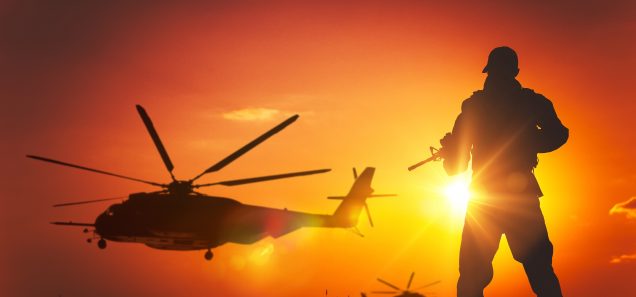Since our efforts to combat ISIS began, we have steadily baby-stepped our way to a much more significant, and what should be an enduring, presence in the Kurdish areas of Iraq. Though as a matter of principle, the current administration has fought putting boots on the ground, whether military or intel, they have steadily, albeit subtly, relaxed their policy on ISIS and brought the war to the most sophisticated extremist group we have seen, perhaps ever. Despite the war’s evolution, I do not agree with how this effort has been fought, nor do many of my colleagues. The United States was and remains capable of defeating ISIS in short order with decisive force if the handcuffs were removed. However, we cannot, and will not, defeat the ideology driving ISIS, al-Qai’da and other prominent extremist groups throughout the region, resulting in a compulsory American presence.
Sadly, these groups have greatly increased in number and while ISIS often steals the limelight, many others are making a name for themselves, al-Nusra Front being one of them. The groups were given unprecedented freedom to form and/or grow following the Arab Spring and the chaos that followed. As a consequence, and because of the steady rise of ISIS, the Middle East is in a horrifying position with nations divided and ethnic conflicts reaching new heights. The instability in Turkey, which existed before but is now all the more explosive following a failed coup attempt this month, has hurt our ability to rely on the country for support and subsequently affected, and in some cases halted, air operations against ISIS in Iraq and Syria.
Due to stressed relations and the calamitous times that plague the Middle East, it’s imperative that the United States not only commit to taking the fight to extremists abroad, but also enable the Kurds in Iraq. In the process the U.S. needs to expand upon their growing footprint in Irbil and build a regional hub that can support operations throughout the region. Sure, Baghdad and the Iraqi government will not be happy, they never are. Nor would most career politicians in Washington agree, but the fact of the matter is the hub is needed and the Kurdish relationship just works. The Kurdistan Regional Government are avid supporters of the United States, listen to guidance from American advisors and the capitol, Irbil, is a safe destination for our troops to live, work and launch intelligence, military and air operations.
Due to stressed relations and the calamitous times that plague the Middle East, it’s imperative that the United States not only commit to taking the fight to extremists abroad, but also enable the Kurds in Iraq.
This is not to say that we abandon our relationship with Baghdad and remove personnel, we shouldn’t. Despite the government being a divisive entity and consistently ignoring, or at minimum, short handing the Kurds, they remain the capitol of a critical country in the region and have a role to play. Rather, it’s important that the U.S. drive the conversation for the Kurds to achieve their independence and create a stable and safe location for our air, ground and logistics officers to rally for operations throughout the Middle East. Certainly other such hubs exist in locations like Doha, but the fact of the matter is Iraq is, and always will be a hotbed for terrorism and is more strategically located for quick strikes, when they are needed.
I understand that Kurdish independence is a separate discussion. However, being the strong partners that they are – far stronger than their Iraqi counterparts – and them having the zeal to protect their land and achieve financial freedom from Baghdad, establishing a hub could be the first step toward their sovereignty. Still, regardless of whether independence is achieved, the capabilities that such an installation would allow for will pay dividends for American policy makers and ensure the safety of our people, both abroad and at home.
By a Senior OpsLens Staff Contributor

















